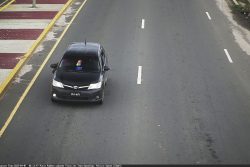From the moment GECOM called on the police to investigate allegations of migrants and dead persons voting, I saw three possible outcomes to the current elections dispute: (1) the evidence presented to the Commission did not taint the majority of votes in the boxes going to the party that won the majority, so the PPP/C has won; (2) the Commission finds it impossible to declare a winner given the weight of the ‘evidence’, so the elections are annulled, and (3) having been able to separate tainted from untainted ballots, the majority in the boxes cannot be sustained, so the Coalition has won. The propaganda on all sides is so enormous that even if by the time this article is published the final decision of the Commission has been given, not only will that decision most likely be challenged in the courts but a greater degree of clarity is likely to help us as we go forward.
Article 162 of the Constitution states that the Commission ‘shall exercise general directions and supervision over the registration of electors and the administrative conduct of all elected members of the National Assembly, i.e., the total management of the elections process. In this sense GECOM is similar to a board of directors in relation to the constitution of and the laws governing companies. For example, the board (accused) must first determine if it is guilty (judge & jury) of a negligent act that led to the death of hundreds of people and what, if any, compensation is to be paid. If the aggrieved persons are not satisfied with the board’s decision they may take to the courts for redress. International best practices appear to bear out my contention
‘While decisions on and conduct of prosecutions of voter fraud would generally, and more appropriately, be the responsibility of civil law enforcement authorities, the electoral management body requires systems in place to fulfill two specific responsibilities:
detect and document all attempted cases of voter fraud, so that suspected perpetrators may be identified and subject to the appropriate processes under electoral or other legislation and regulations;
determine, if at all possible before the finalization of counts and the announcement of election results, if the extent of any detected fraud regarding voting is sufficient to have a possible effect on the results of any election’ (http://aceproject.org/ace-en/topics/vo/vog/ vog05/vog05b/mobile_browsing/onePag).
It seems to me that the second bullet is what the CEO of GECOM has done when he reported to GECOM that given the votes and other evidence before him he is unable to recommend to them a winner of the March 2020 elections. It is now for his ‘board’ to examine his conclusions and agree or disagree with him, and if they agree to take the necessary steps to annul or to get the elections annulled (see below). It is then for the aggrieved party to go to the court by way of an elections petition to possibly overturn the decision of GECOM.
However, Guyana’s situation is somewhat more problematical because given our history of delaying elections petitions no one is going to rely on one. Not surprisingly, we hear appeals to Article 177(2)(b) of the Constitution, which states, ‘Where …. there are two or more Presidential candidates, if more votes are cast in favour of the list in which he is designated as Presidential candidate than in favour of any other list, that Presidential candidate shall be deemed to be elected as President and shall be so declared by the Chairman of the Elections Commission acting only in accordance with the advice of the Chief Election Officer, after such advice has been tendered to the Elections Commission at a duly summoned meeting.’ According to this line of reasoning, the task of the CEO and the GECOM are merely to relay the winner as being the person with the majority for the votes in the boxes.
However, the framers of the Constitution could not have possibly meant by ‘votes … cast’ invalid and illegal votes, and the request to the police to investigate the allegations suggested that the Commission had rightly dismissed this view. That said this column and the recent Caricom observation report have placed much store in factual evidence being provided in support of any allegations. Indeed, the observers claim that they could not discern from the process in which they were involved and no credible evidence has been produced to make them believe that the votes in the boxes do not reflect the true wishes of the Guyanese people.
In a previous article I argued that Guyanese agreed to participate in the recent elections with the understanding that it was ‘impossible’ for persons to vote for migrants who were out of the country on elections day and for those who have died. And if a factual investigation finds that ‘hundreds and over 1,000 did so and that this did not happen in one or two regions but in every region of the country’ the problem is not merely numerical; it is structural and suggests that some corrupt actor has been systematically attempting to influence the outcome of the 2020 elections’(SN: 03/06/2020).
The CEO of GECOM in his report on the 2020 elections recorded that a total of 4864 allegations of impersonation were made across all the ten regions of Guyana and that the Chief Immigration Office and the General Register’s Office Deceased ‘confirm that these were of substance’. Yet on this issue the Caricom Observation Report that was completed on the 13/06/2020, the same day the CEO’s report was released stated categorically ‘no proof was offered’ of impersonation and perhaps it was not or what was offered was not of the required standard for this kind of elections audit. I hope that the CEO has taken note of this and that the GECOM commissioners will be similarly rigorous when considering his presentation across the gamut of anomalies and illegalities because regardless of what GECOM declares this matter will end in the courts.
Article 163 of the Constitution states, ‘Subject to the provision of this article, the High Court shall have exclusive jurisdiction to determine whether an election has been lawfully conducted or whether its results have been affected by any unlawful act or omission.’ As a result, some would have us believe that even if the GECOM and its CEO feel that the elections have been fraudulent they cannot give legal effect their position. Here again, best practices, that may be killing two birds – making resort to the courts no longer necessary – with one stone, suggest a way forward. ‘If the extent of fraud detected is sufficient to have possibly affected an election’s results, the electoral management body itself making application to the relevant judicial authorities that an election be set aside will aid in projecting the image of the electoral management authority’s vigilance, professionalism, and integrity in the face of attempts to manipulate election outcomes.’
In our ethnic environment professionalism, integrity, etc. depend largely upon the ethnic side you support. That aside, my standpoint is that the kind of Coalition win the AG has suggested (SN Letters: 14/06/2020) would be morally and politically unacceptable even if legally possible. I have long argued in this column that the PPP and PNC both routinely manipulate elections, so the CEO’s declaration is not surprising. His decision towards annulling the elections is progressive for it demands immediate electoral reforms that will put a break on our large ethnic parties manufacturing majorities. However, a truly democratic system requires much more than this: it requires the destruction of the political system that encourages life and death struggles for political control based upon ethnic allegiances, and the gradual development of mutual toleration and institutional forbearance – the fundamental ingredients of a functioning democratic society.









